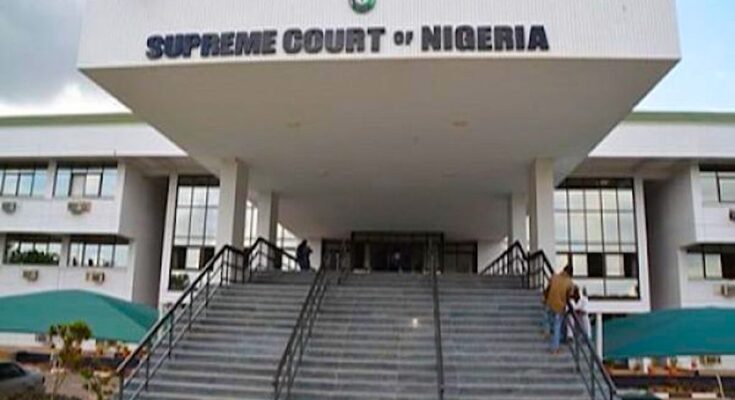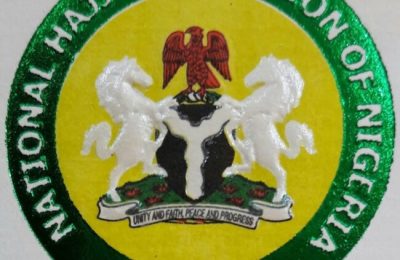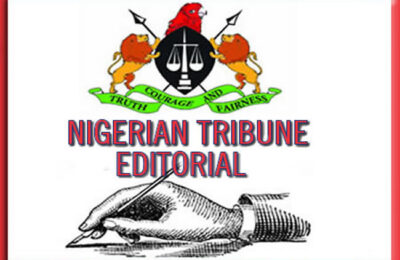
The National Judicial Council (NJC) is meeting Wednesday through Thursday for the final quarterly meeting of the year.
A main menu of the meeting is the consideration of 11 names, submitted by its appointment committee for elevation to the Supreme Court.

The 11 nominees were picked from the 22-man list presented to the Council by the Federal Judicial Service Commission, headed by the Chief Justice of Nigeria, KayodeAriwoola.
He is also the chairman of the Council.
The appointment committee is chaired by the most senior judicial officer after the CJN, Justice KudiratKekere-Ekun.
Her committee, conducted a marathon session last Tuesday through Thursday, considering nominations for categories of bench vacancies.
Apart from the 11 selected Court of Appeal justices for elevation, new heads of courts and judges for various divisions with openings, were also picked by the Kekere-Ekun panel.
She is the vice-chairman of the Council.
Nigerian Tribune also learnt that those under consideration, have been vetted by the Department of State Service, Economic and Financial Crimes Commission and the Independent Corrupt Practices and Other Related Offences Commission.
While the contents of their various reports were not made public, it was learnt that the Council, would not have progressed with the exercise for any of the nominees, considered unworthy of the bench, by the security and financial crime agencies.
A senior source in the Council disclosed that all the nominees, must have been given a clean bill of health, for the Kekere-Ekun committee to consider them.
It could not be confirmed if an adverse security report was responsible for the unexplained removal of Justice Muhammad LawalShuaibu from Jigawa, from the North West priority list.
He is the 34th most senior Justice of the Court of Appeal.
Those on the priority list, are favoured to go through.
He was dropped before the Kekere-Ekun committee commenced the interview session.
Feelers from the screening committee suggested a challenging time for another priority nominee; Justice AdewaleAbiru, as stakeholders ratchet criticism up over the zoning of the sole South West slot to Lagos.
A source disclosed that “many are complaining that Abiru from Lagos is taking the South-West slot when Justice Kekere-Ekun from Lagos is already on the apex court bench.
Those kicking are also saying that since Ogun and Lagos are paired for one of three statutory slots for the South-West, someone from Lagos should not be replacing Justice Bode Rhodes-Vivour.
Another priority nominee whose fate is unpredictable is Justice Baba Idris, son to ex-CJN, now-late IdrisLegboKutigi.
His nomination has attracted a lot of attention, considering that he is leap-frogging his senior colleagues, including the one from the same Niger State with him and sharing the same Kaduna Division bench, Justice Amina Audi Wambai.
While Wambai is 28 on Court of Appeal seniority list, Idris is 54.
If Idris is elevated, he will spend 17 years at the apex court, serving out the last five as the CJN.
He was elevated to the Court of Appeal five years ago.
Nigerian Tribune has also learnt that the judicial imbroglio in Osun is being reviewed by the leadership of the judiciary, though the Council will continue to recognize Justice AdebolaAdepeleOjo as the Chief Judge of the state.
A senior operative disclosed that despite her reported suspension from office by Governor AdemolaAdeleke, the payment of her salary by the Council won’t stop.
The Council is, however, likely to issue her a query on the allegations tabled by the state government, it was learnt.
As a way of expanding entry-level transparency, it was gathered that the names of nominees for all judicial appointments will start appearing in the media, ahead of their consideration for available vacancies.
Currently, nominees’ names are only displayed on the notice board of the Nigerian Bar Association Council’s website and notice boards of other courts.
NJC will recommend final pick for the apex court and other vacancies to the appointing authorities as applied; President Bola Tinubu for federal and state governors for state appointments.
In recent memory, the ongoing process will mark the first time the Supreme Court will be having a full complement of 21 justices envisaged by the constitution, though Ariwoola’s retirement next year is going to mark the beginning of another round of drop.
A ranking judicial administrator who wanted anonymity to speak freely said of the regular number deficit on the apex bench, “before any vacancy is filled on the bench of Supreme Court or any superior court of record, the process takes sometime.
In some cases, one month, in some other cases, more than a month. Therefore, no one should be held responsible but the mechanism replete on the system.
“Perhaps the mechanism for filling such vacancies should be fast-tracked. NJC has done something in that vein, though” he concluded.
READ ALSO FROM NIGERIAN TRIBUNE








